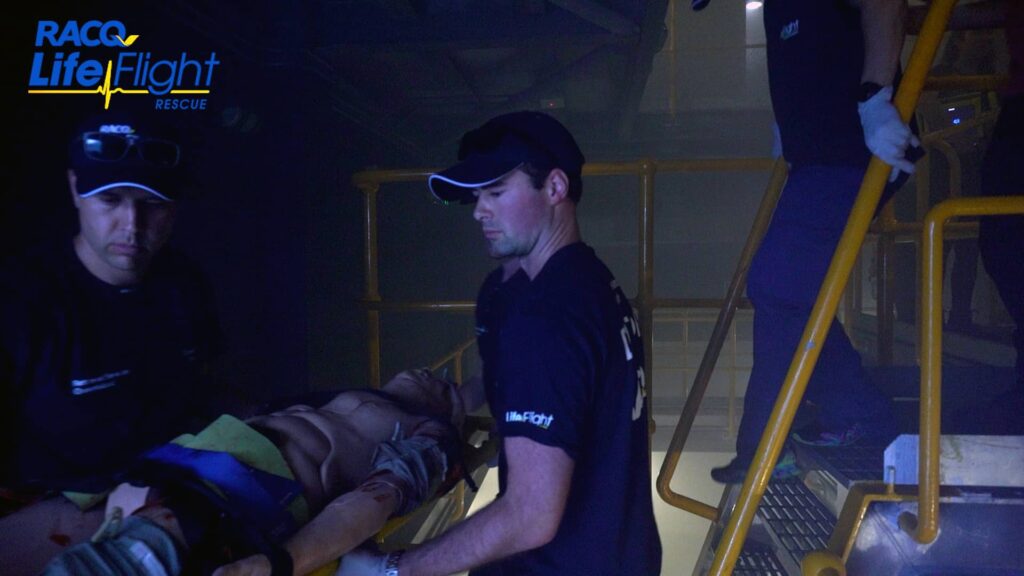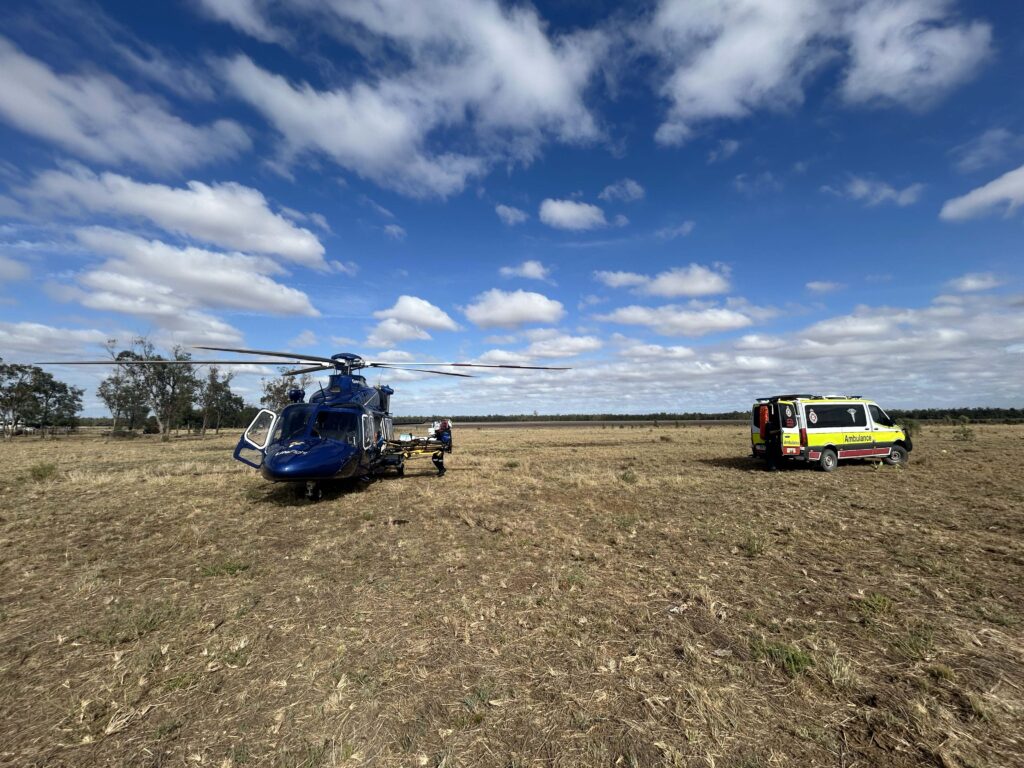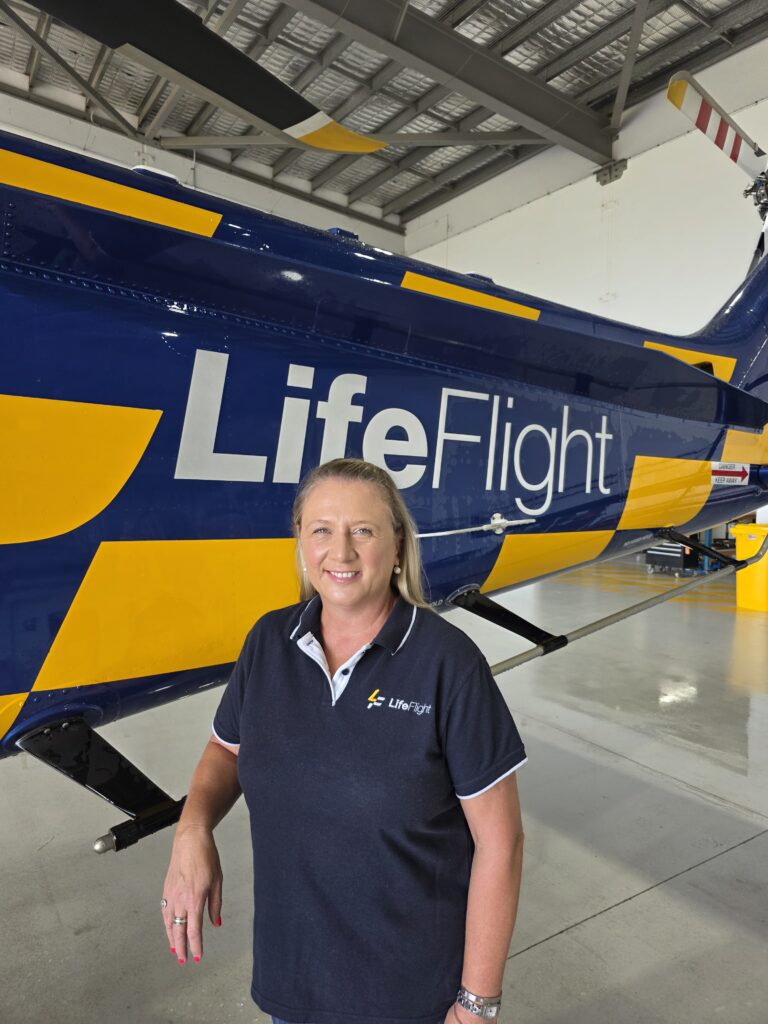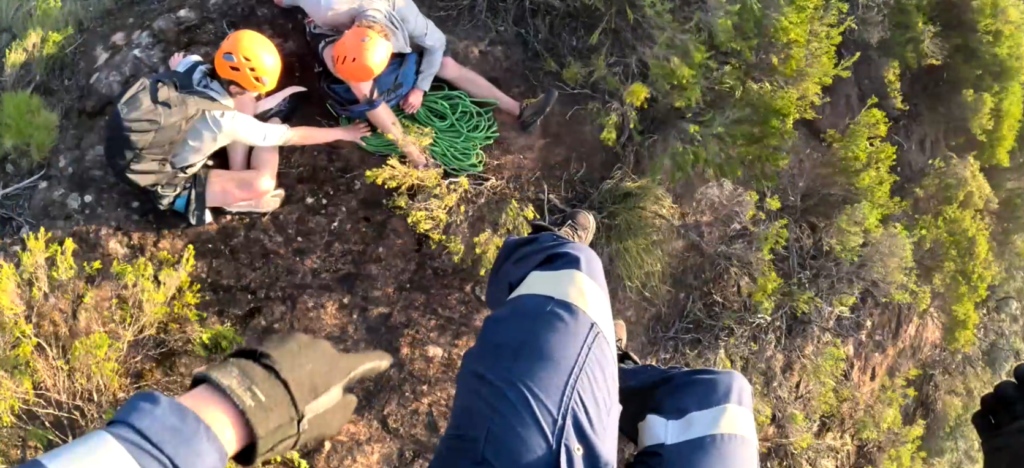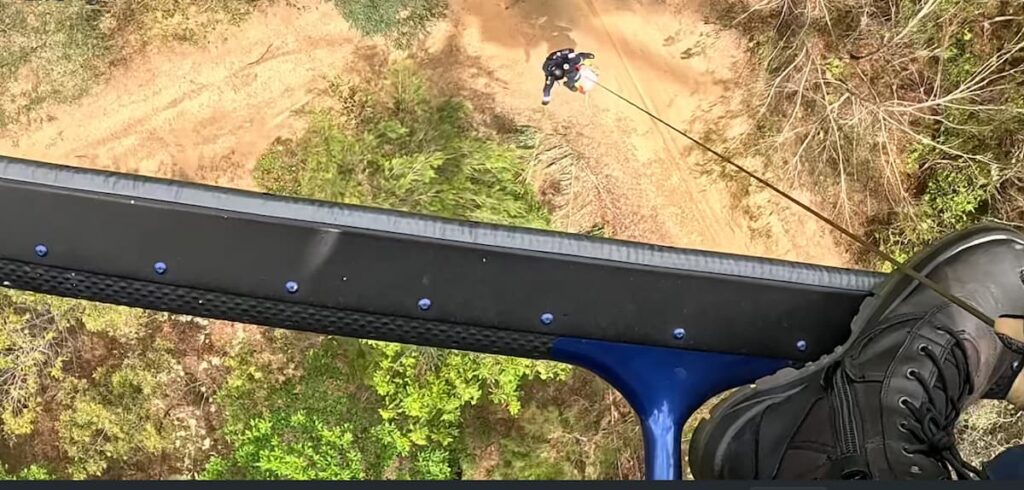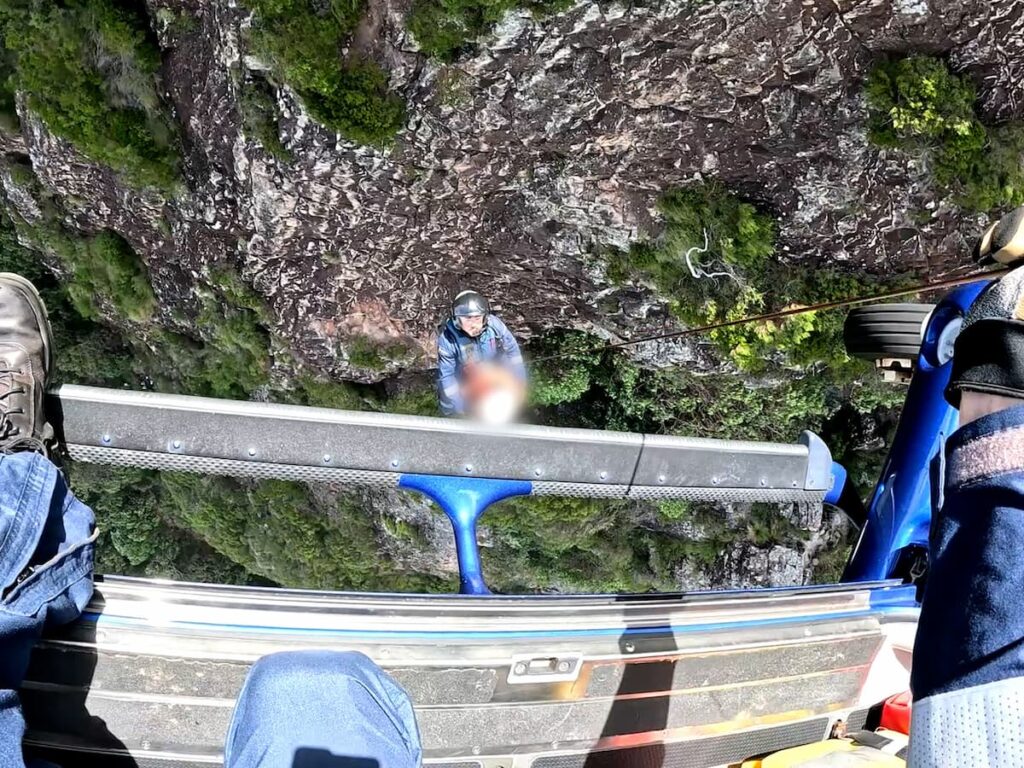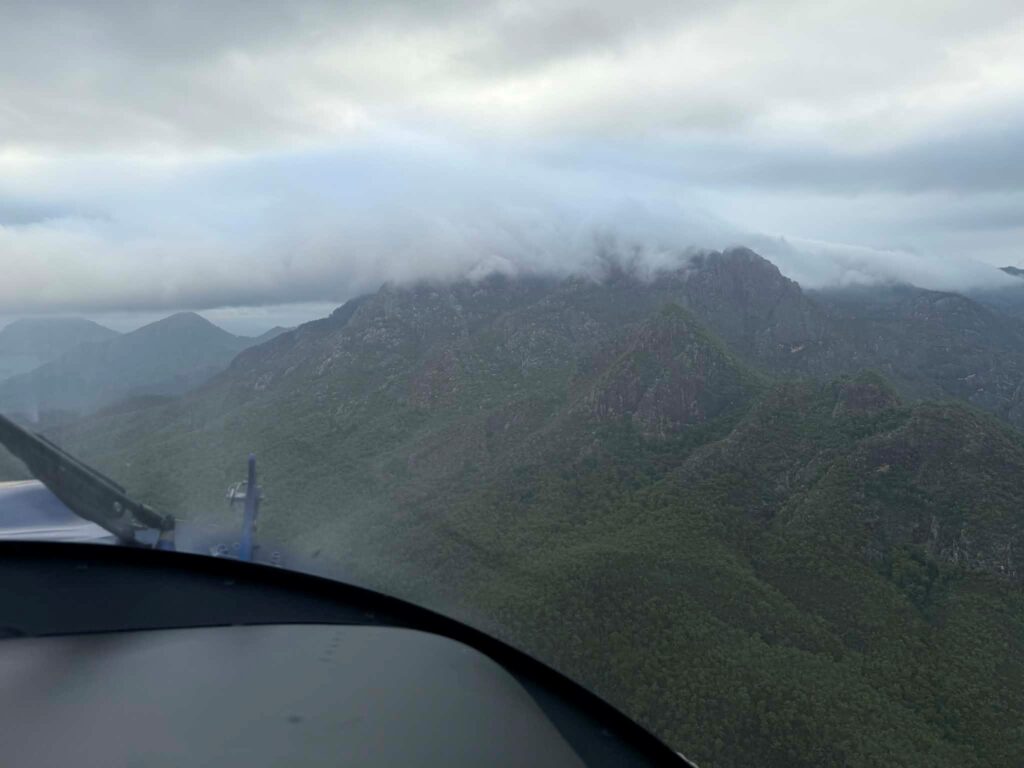The newest RACQ LifeFlight Rescue Critical Care Doctors have buckled up to help Queenslanders, in their times of need.
The Retrieval Registrars, who will work with aeromedical services around the state, have completed an exhilarating training program, equipping them with the skills to take advanced medical care, wherever it’s needed.
One of the eleven new recruits to be based in Brisbane, Dr Emerald Stewart, was inspired to take on the challenging role, by RACQ LifeFlight Rescue Critical Care Doctors she works with at the Gold Coast University Hospital.
“I wanted to upskill outside my usual field of anesthesia and learn different communication techniques, not just clinical techniques, but communication techniques that I can take into my job every day, that will overall make me a better doctor,” Dr Stewart said.
“Also, it’s obviously a pretty cool thing to do, to fly in helicopters and potentially winch patients,” she said.
Before taking to the skies, the new doctors went through LifeFlight’s world renowned training program.
In a first for the aeromedical service, the Retrieval Registrars performed their aviation and winch training on the new Land Rover LifeFlight Special Mission helicopter.
This enabled the Special Mission helicopter crew to be ready to go above and beyond, by further refining their skills and continuing their training regime, while allowing the fleet of RACQ LifeFlight Rescue community helicopters to remain online and available for life-saving missions.
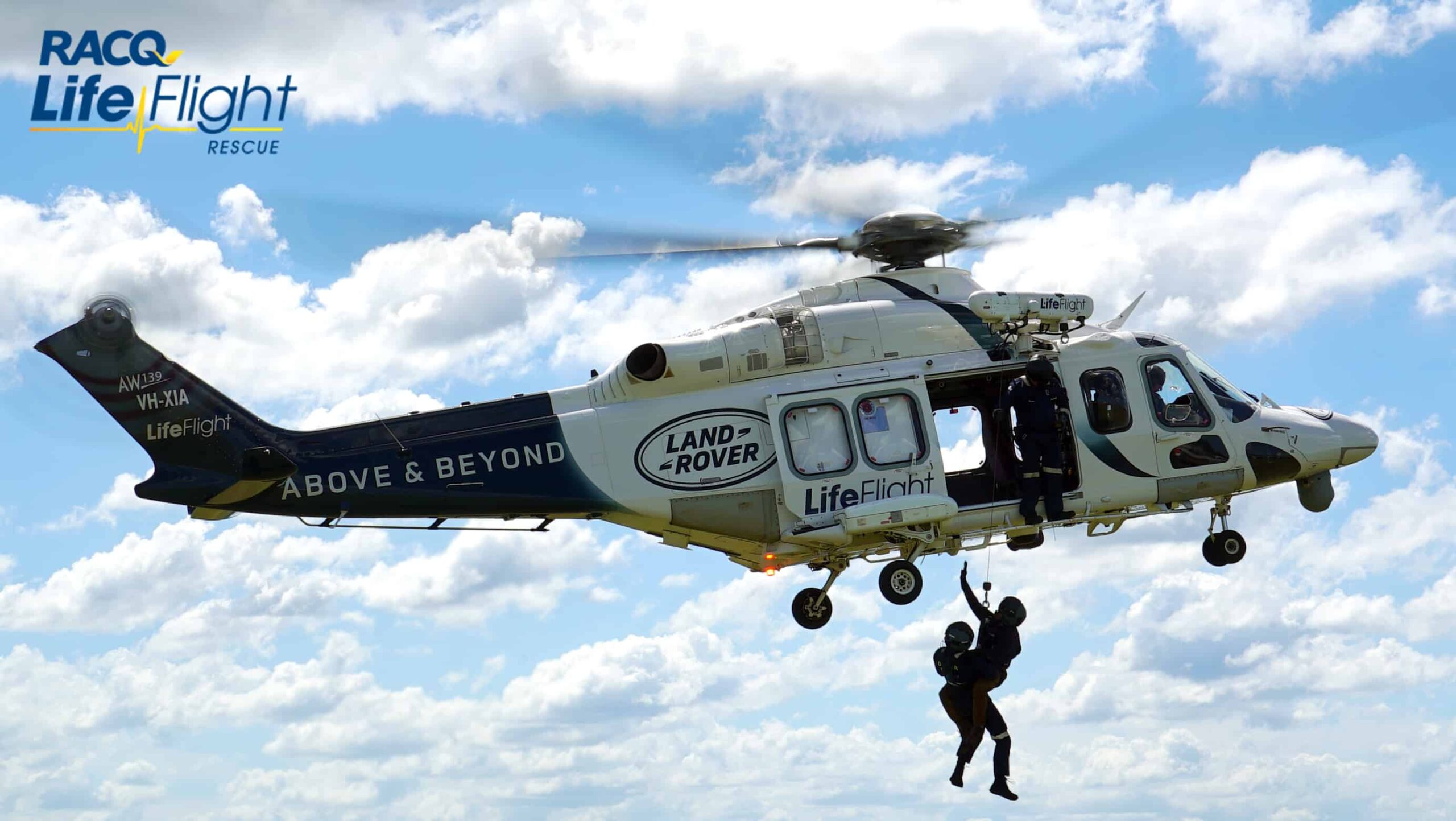
“Being able to winch doctors to scenes means we can take advanced care to anyone in need, even if they’re in hard to access locations,” RACQ LifeFlight Rescue Chief Aircrew Officer Simon Gray said.
“For doctors who have never been near a helicopter before, winching can seem very confrontational at first, but we gradually build up the training, so they grasp it fairly quickly.”
The doctors also learnt how to save their own lives, in the unlikely event of a helicopter crashing into water.
The trainees were literally thrown in the deep end, during Helicopter Underwater Escape Training.
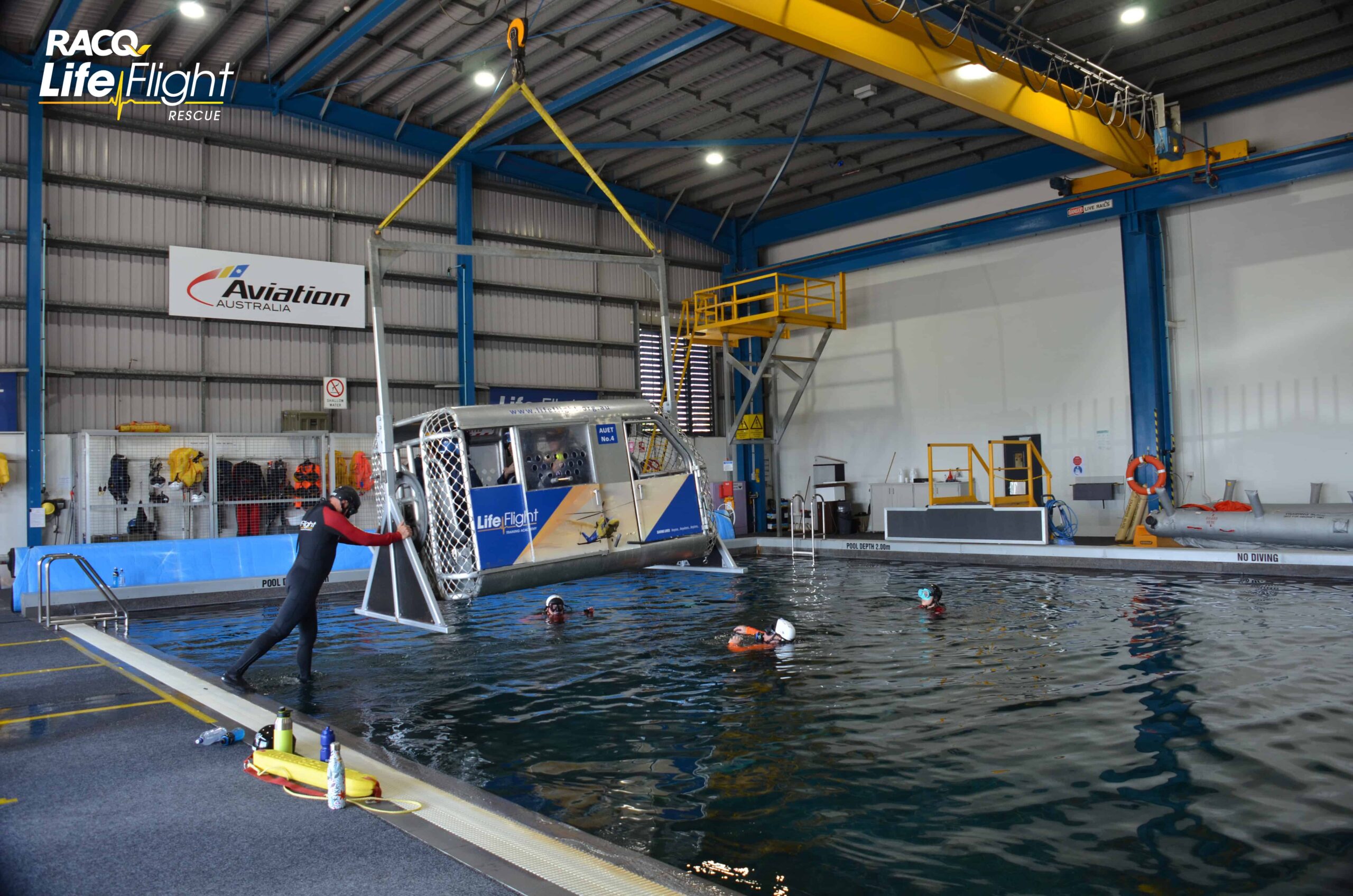
“It’s highly unlikely an aircraft will crash in the water, whether that’s an ocean, lake or dam, but these doctors need to know how to mentally and physically orientate themselves whilst underwater, in the event that it does happen,” LifeFlight Training Academy Sea Survival Instructor Jenevieve Peacock said.
The Retrieval Registrars learnt specific pre-hospital and retrieval clinical skills and put them into practice in high-pressure scenarios at the Queensland Combined Emergency Services Academy at Whyte Island, in Brisbane.
“So much of it is hands on with simulations, really good clinical teaching and then you take it into immediately getting hands on with simulation patients, so it’s been really rewarding,” Dr Stewart said.
The majority of the RACQ LifeFlight Rescue Critical Care Doctors’ work is performed on behalf of Queensland Health, under a ten-year service agreement.
